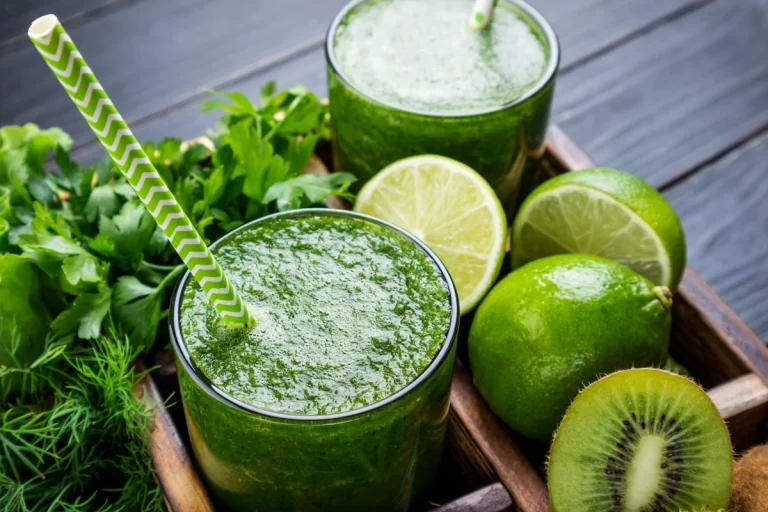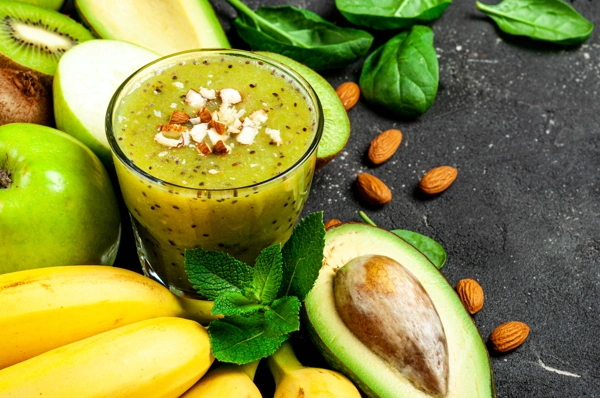Have you ever heard of the dreaded keto flu? It’s a real thing, and it can make the transition to a low-carb, high-fat diet feel really tough.
So, what is keto flu? What causes it? And most importantly, how can you avoid or alleviate its effects? In this blog post we’ll answer these questions and more – so that your journey on a ketogenic diet will be as smooth sailing (and symptom-free) as possible!
We’ll discuss common symptoms such as fatigue and brain fog, plus give tips for avoiding them altogether. We’ll also explain why some people experience far fewer effects than others. Let’s tackle this together!

What is The keto flu?
The keto flu is a very common experience for people switching to a low-carb or ketogenic diet. It’s often described as feeling similar to the symptoms of the flu, including fatigue, muscle cramps, headaches, dizziness and irritability. As you transition into eating a high-fat and low-carbohydrate diet, your body needs time to adjust and adapt.
It’s important to note that not everyone experiences the keto flu when they start their transition into eating a lower carbohydrate diet. However, if you do experience it—and it’s causing discomfort—it might be helpful to understand what causes it and how you can reduce its effects. The keto flu is caused primarily by two things: dehydration due to cutting carbohydrates out of your diet; and an electrolyte imbalance due to changes in insulin levels once you enter ketosis (the state in which your body produces ketones for energy instead of glucose).
In order to beat the dreaded “keto flu” symptoms without resorting back to carbs or quitting altogether, there are several remedies that can help make this period easier on your system!
Make sure you are drinking plenty of water throughout the day (at least 2 liters), eat enough calories from healthy sources such as vegetables, proteins, fats and natural dietary sources like bone broth or magnesium supplements; get adequate sleep; avoid strenuous exercise until symptoms subside; increase salt intake by adding extra tablespoons while cooking as well as increasing consumption of salty foods such as olives & pickles; add potassium nutrient rich foods such as avocado & spinach; supplement with electrolytes or drink sports drinks in moderation if needed; take some time off work if possible during this transition period so you don’t overstress yourself mentally or physically.
What exactly is the keto flu?
The keto flu is one of the most common side effects associated with the ketogenic diet. It’s a period of intense physical and mental discomfort that many people experience when they switch to a low-carb, high-fat lifestyle. During this time, your body is transitioning from burning sugar and carbohydrates as fuel, to using fat instead.
People often describe feeling fatigued during this process as their energy levels drop due to reduced carbohydrate intake. This can be compounded by symptoms such as headaches, dizziness, irritability, muscle cramps and cravings which can all be caused by drastic changes in dietary habits and metabolic hormones like insulin or cortisol.
In order to prevent or reduce the severity of the keto flu symptoms it’s important for people starting out on a low-carbohydrate diet to drink plenty of water and increase their intake of sodium, potassium, magnesium and other electrolytes. Additionally eating enough protein in each meal can help alleviate hunger pangs while keeping blood glucose levels within normal limits so you don’t experience extreme fatigue or irritability during your transition into ketosis!
The cause
The cause of the keto flu is when the body is put through a transition from burning sugar or carbohydrates as its primary energy source to burning fat and ketones. This transition can be difficult for some people and is often accompanied by some mild to severe symptoms due to imbalances in electrolytes, cortisol levels, dehydration, glucose stores, and glycogen levels.
When carbohydrates are cut out of the diet, people often experience low blood sugar and lack of energy as their bodies have not yet adapted to using fat for fuel instead. Additionally, losing water weight from eating fewer carbs can lead to dehydration and cause dizziness or headaches. People might also feel irritable or fatigued due to a decrease in insulin levels and an increase in cortisol (the stress hormone), which usually occurs during carbohydrate restriction.
The cure for the keto flu
The cure for the keto flu is all about increasing your electrolytes and water levels. This helps to balance out your body’s hormone levels, and restore optimal metabolic function.
You should drink plenty of fluids, such as water or sugar-free broth, to help hydrate your body and replenish lost electrolytes while on the ketogenic diet. Eating foods high in sodium, potassium, magnesium and other essential minerals can also be helpful in combating the keto flu symptoms like fatigue and dizziness.
It’s important to note that you should avoid getting too much protein when transitioning into a low-carb lifestyle as it can reduce glucose stores and increase cortisol levels in some people. Instead of relying heavily on carbohydrates for energy, adjust your eating habits by increasing fat intake from healthy sources like olive oil or coconut oil to help fuel your body adequately.
Incorporating enough vegetables in every meal will also provide necessary micronutrients that are often lacking during times of carbohydrate restriction – this includes vitamins A, D & K2 which are important for thyroid health! Lastly, supplementing with a good quality multivitamin might be beneficial during this transition period as well – just make sure to consult with a medical professional before starting any new dietary supplements.
Stay hydrated
Staying hydrated is one of the most important aspects to beat the keto flu. People who are transitioning to a ketogenic lifestyle often experience dehydration due to the decreased intake of carbohydrates and glucose, which is the primary source of water for your body.
Water helps keep fatigue, headaches, dizziness, nausea, cramps and constipation at bay. It’s also essential when cutting out carbs because it helps your body flush out all those toxins that were stored in fat cells instead of being eliminated naturally through carbohydrate metabolism.
Furthermore, drinking plenty of water helps reduce cravings and keeps energy levels up by preventing your thyroid hormone levels from falling too low – something common during carbohydrate restriction diets like keto. If you’re experiencing any symptoms such as fatigue or irritability due to lack of glucose and glycogen stores – cut back on exercise and get enough sleep while drinking lots of fluids!
Replace electrolytes
Replacing electrolytes can help to reduce the effects of the keto flu and get you back on track quicker. Electrolytes are minerals that conduct electricity when dissolved in water – they’re essential for maintaining a healthy balance in our bodies, including nerve and muscle function. People following a ketogenic diet often experience an imbalance in electrolyte levels due to decreased intake of carbohydrates, which may lead to dehydration, fatigue and other symptoms commonly associated with the keto flu.
It’s important to increase your sodium, potassium and magnesium intake while following a ketogenic diet; these three electrolytes are essential for optimal body functioning. Sodium is found in most processed foods as well as sea salt and bouillon broth; potassium is plentiful in leafy greens such as spinach, avocados and nuts; finally magnesium is abundant in dark chocolate, pumpkin seeds and legumes.
Increasing your daily intake of these key electrolytes will help you avoid some common symptoms such as headaches or dizziness related to low blood sugar levels while transitioning into a low-carbohydrate lifestyle.
Get adequate sleep
One of the most important steps to beating the keto flu is getting enough sleep. Your body needs time to rest and recover from all of the metabolic changes you’re experiencing, so make sure you give it plenty.
Sleep can also help reduce cortisol levels which can be elevated due to stress or dietary restriction. Research has shown that not getting enough sleep can lead to increased cravings for carbohydrates, making it more difficult for you to stay in ketosis.
Your body works hard when transitioning into a low-carb lifestyle, and getting adequate sleep will help replenish your energy stores and reduce fatigue throughout your day. Remember that quality is just as important as quantity when it comes to sleeping — try going dark in your bedroom and avoid any distractions like phones or TVs that might disrupt your shut-eye.
More fat = fewer symptoms
The ketogenic diet relies on an increased fat intake to fuel the body. As your body adapts to this new way of eating, it can become overwhelmed and cause a variety of unpleasant symptoms. However, by eating enough fat in your diet, you can reduce or even avoid the symptoms altogether.
When you switch over to a low-carb or keto diet, your body will start burning fat for energy instead of carbohydrates. This process leads to the production of ketones that are then used by our cells as fuel. If you don’t get enough dietary fat in your meal plan while transitioning over to the keto diet, your brain might not have enough energy reserves and could suffer from fatigue and reduced cognitive function – two common symptoms of the Keto Flu.
Getting more healthy fats into every meal is essential in order to prevent any potential issues related to low carbohydrate levels. To up your daily fat intake during this transition period, try adding foods like avocados and olive oil into smoothies or salads for lunch; snack on some nuts or nut butter; make sure each dinner has plenty of fatty proteins such as fish or eggs; include coconut milk when making curries at home; opt for cream cheese when baking treats…the list goes on!
By increasing dietary fat intake and following these tips during the transition period from regular diets over to a low-carb lifestyle, you’ll be able to significantly reduce Keto Flu symptoms so that you can enjoy all the benefits that come with it!
Go easy with physical activity
Physical activity is an important part of any healthy lifestyle, especially when transitioning to a ketogenic diet. That being said, it’s important to know that your body might need some time to adjust and recover during the first few weeks of your transition.
When you start a low-carb or keto diet, you are cutting out almost all sources of carbohydrate intake which can lead to disrupted energy levels in the beginning. Exercise requires more energy than usual and thus can exacerbate the fatigue people often experience when transitioning into ketosis. While exercise will help increase metabolic rate and burn fat, it is also likely to put more stress on your body while it attempts to adapt.
It is better for most people during this period of adaptation to take it easy on physical activities rather than jumping in with both feet. This does not mean that you should avoid exercise altogether; however limiting yourself from overdoing it will be beneficial in the long run as continuing intense workouts could result in increased symptoms such as dizziness and muscle cramps due to electrolyte imbalances brought about by dehydration from perspiration or glycogen depletion from too much exercise before transitioning into ketosis has completed its process completely.
What are the symptoms of the keto flu?
The keto flu is a group of symptoms that many people experience while transitioning to a ketogenic lifestyle. The most common symptoms include fatigue, headaches, dizziness, muscle cramps, nausea, constipation and cravings for sugar or carbohydrates.
These symptoms can be caused by dehydration due to the decrease in water-soluble glucose levels in the body and an electrolyte imbalance from eating fewer carbohydrates than usual. It could also be caused by decreased levels of energy as your body gets used to burning fat instead of carbs for fuel.
The best way to prevent these symptoms is to drink plenty of fluids and increase your intake of sodium and potassium-rich foods such as broth or bone marrow, magnesium-rich foods like leafy greens or pumpkin seeds, and sources of healthy fats like avocados or nuts. Getting adequate sleep is also important because it helps reduce stress hormones that can cause fatigue during this transition period.
How long does the keto flu last?
The duration of the keto flu varies by person. Generally, people can expect it to last up to a week or two, though some may experience symptoms for a little longer. It is important to note that if you are transitioning from eating high carb foods to following a low-carb or ketogenic diet, these symptoms may be more intense and last longer than they would otherwise.
It’s also important not to underestimate the power of hydration and electrolytes in helping reduce keto flu symptoms quickly. Staying well hydrated with plenty of water and increasing your intake of electrolyte sources like bone broth, sodium, magnesium and potassium can help bring relief faster. Eating enough vegetables for their dietary fiber content might also help reduce some digestive issues like constipation which could come with the transition into ketosis.
Finally, getting enough sleep every night is essential when going through this shift in lifestyle as fatigue is generally one of the first symptoms experienced when starting an ultra-low carbohydrate diet or transitioning from high carb diets to low carbs ones. Insufficient sleep has been linked both directly and indirectly with weight gain so restful nights should always be a priority!






